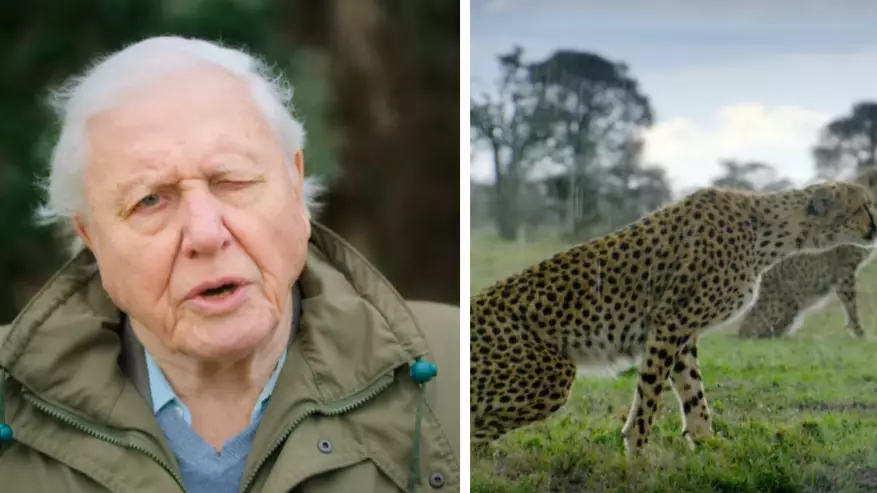
David Attenborough is back with another nature documentary, and it looks set to be one of his most hard-hitting series yet.
Breaking Boundaries: The Science of Our Planet will see the veteran broadcaster team up with scientist Johan Rockström to explore the risks human life poses to Earth and how we can avert them.
A spokesperson for Netflix said: "Breaking Boundaries tells the story of the most important scientific discovery of our time - that humanity has pushed Earth beyond the boundaries that have kept Earth stable for 10,000 years, since the dawn of civilisation.
Advert
"The 75-minute film takes the audience on a journey of discovery of planetary thresholds we must not exceed, not just for the stability of our planet, but for the future of humanity. It offers up the solutions we can and must put in place now if we are to protect Earth's life support systems."
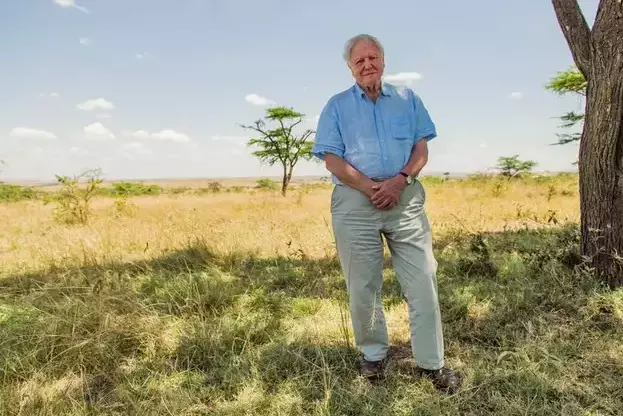
We recently caught up with Sir David, 95, to celebrate the launch of his recent documentary series A Perfect Planet where he shared his thoughts on zoos.
Sir David exclusively told Tyla that he thinks captive animals are needed - so long as the facilities maintained "the best possible standard" - so that humans can be "aware of their reality".
"If you're talking about animals that have been reduced to less than 100, and the reason is because something has happened in their environment which has made it impossible to survive, you can either sit back and say 'well, they can look after themselves,' or you've got to do something active," he told Tyla last year.
Advert
"New Zealand, for example, has done extraordinary things in saving its endemic species - for which it has a great number.
"And if you look at the Arabian oryx [a medium sized antelope found in the desert and steppe areas of the Arabian Peninsula]... the Arabian oryx was extinct in the wild, and it was only saved because people realised that zoos in America and Europe, as well as private collectors, had got individual animals.
"They brought them all together and they created a breeding stock. They grew in numbers and they've now re-released them into the wild.
"So, there are cases of urgency, where in fact animals can justify being kept, and must be kept in captivity. [Although] that's an extreme case, of course."
Advert
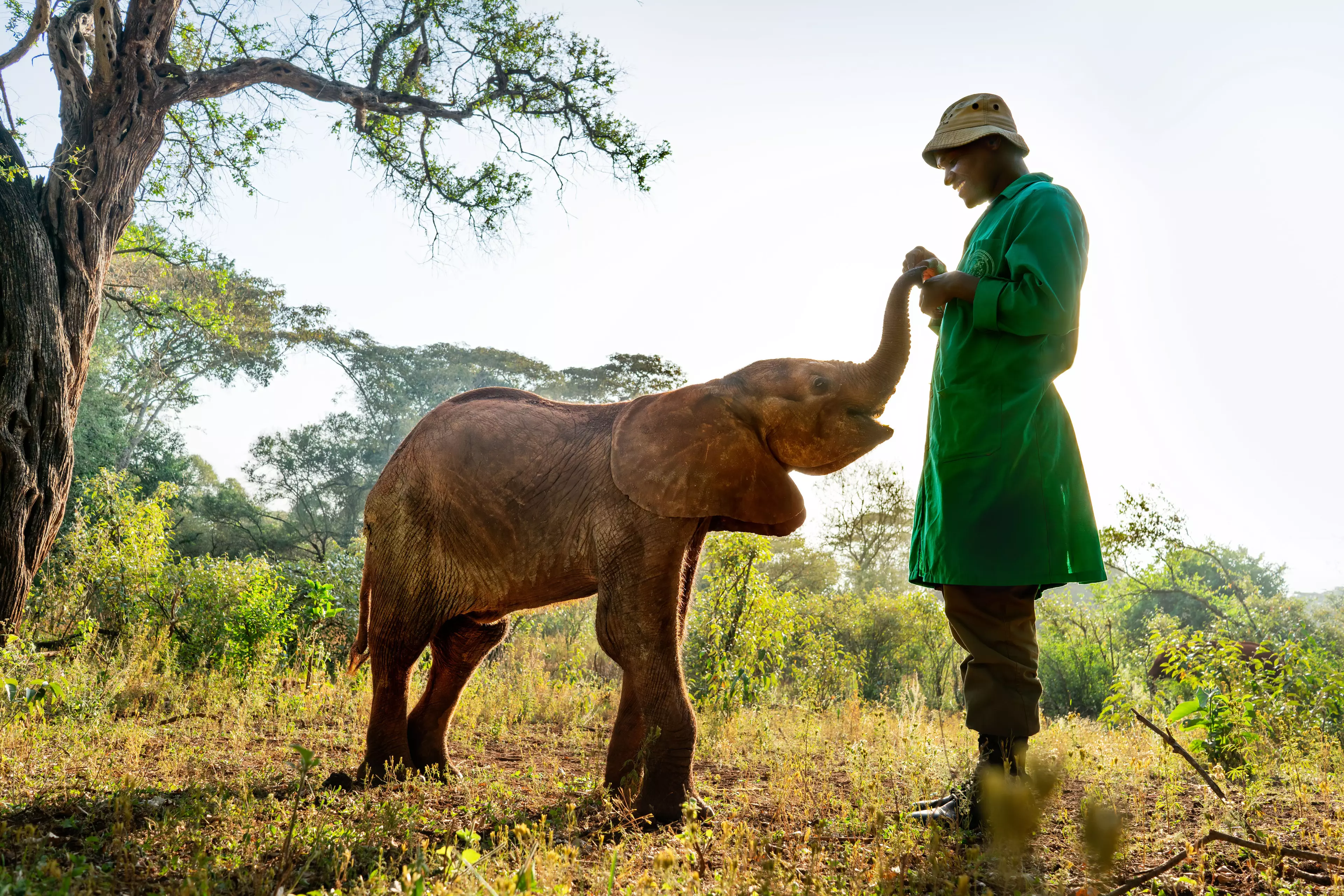
One of the biggest criticisms of zoos and aquariums (or indeed of captive animals as a whole), is that creatures can suffer from "lack of stimulation", with limited space to roam outside of their new habitats and less companions with whom to enjoy "complex social relationships".
This is something highlighted again and again by campaigners such as Freedom For Animals and PETA.
And while Sir David acknowledges this is true for some creatures in captivity, he argues that "to generalise about animals from all over, and of any kind, is impossible".
Advert
"There are some animals that thrive in captivity and some don't," he reasons. "It depends how big they are and what their habits are.
"Eagles should not be kept in zoos at any time, but there are monkeys, for example, or squirrels, that do perfectly well, and aquaria, of course, do very well indeed.
"So, it's important that the public at large should be aware of the reality of these things."
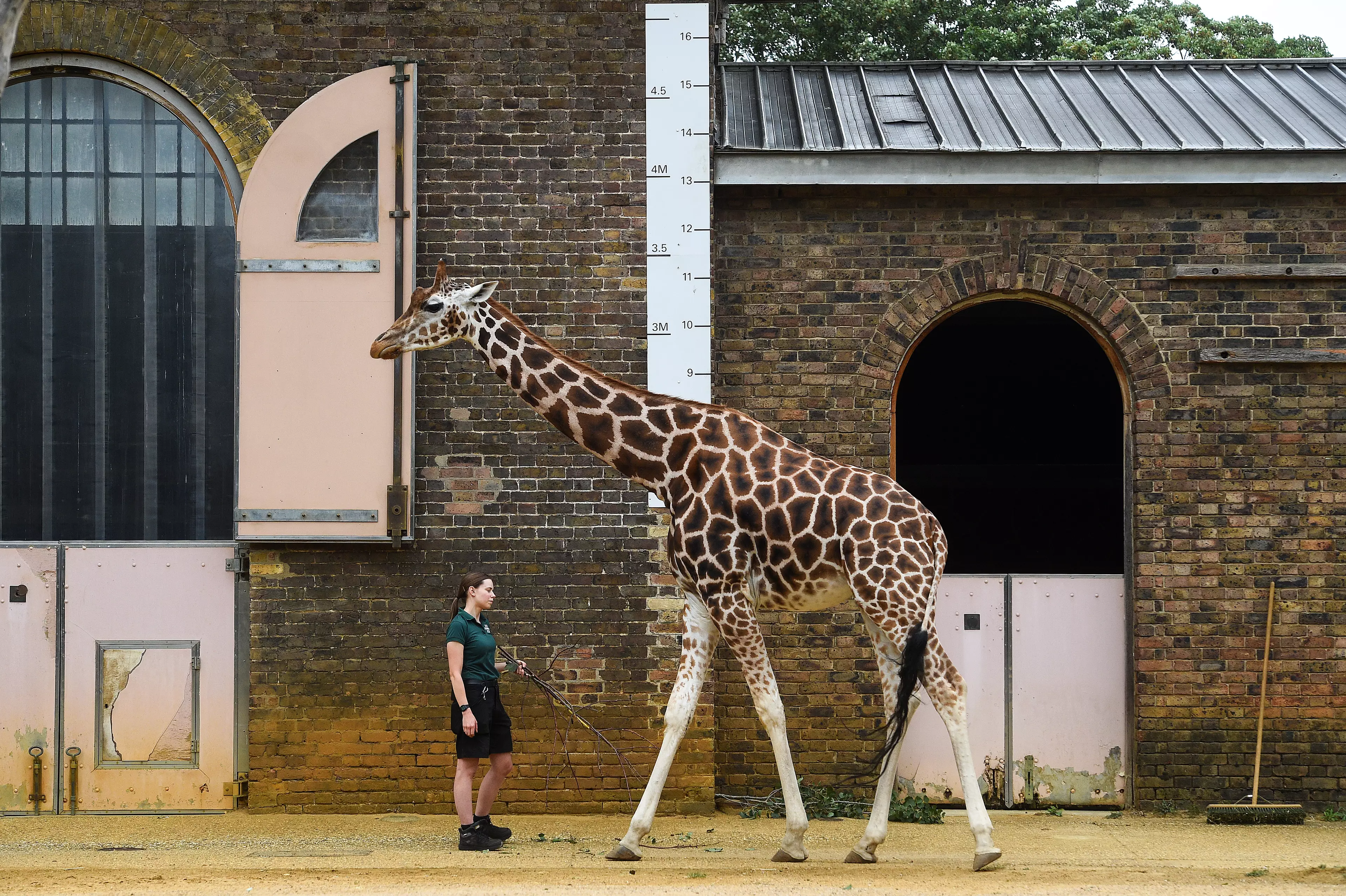
Advert
The documentarian added that we should also not diminish the importance of seeing animals in the flesh - "to get close to them and know what they smell like and what they sound like" - when trying to boost conservation efforts across the globe.
"So, I justify zoos providing they are scientific, providing they are selective with what they keep and providing they keep them to the best possible standard," he concludes.
Sir David's defence of zoos and aquariums comes after he backed an appeal earlier in the year which pushed to save London Zoo and Whipsnade Zoo from closing down, as a result of the pandemic.
He also began his career in broadcasting by presenting the BBC series Zoo Quest.
The documentarian's desire for us to visit these facilities and admire the world's creatures isn't surprising, seeing as we're literally racing against the clock to save them.
"We are facing a real crisis, this is not just talk or fantasy. If we heat the earth so the Arctic melts, every city will be under water," he adds during the interview.
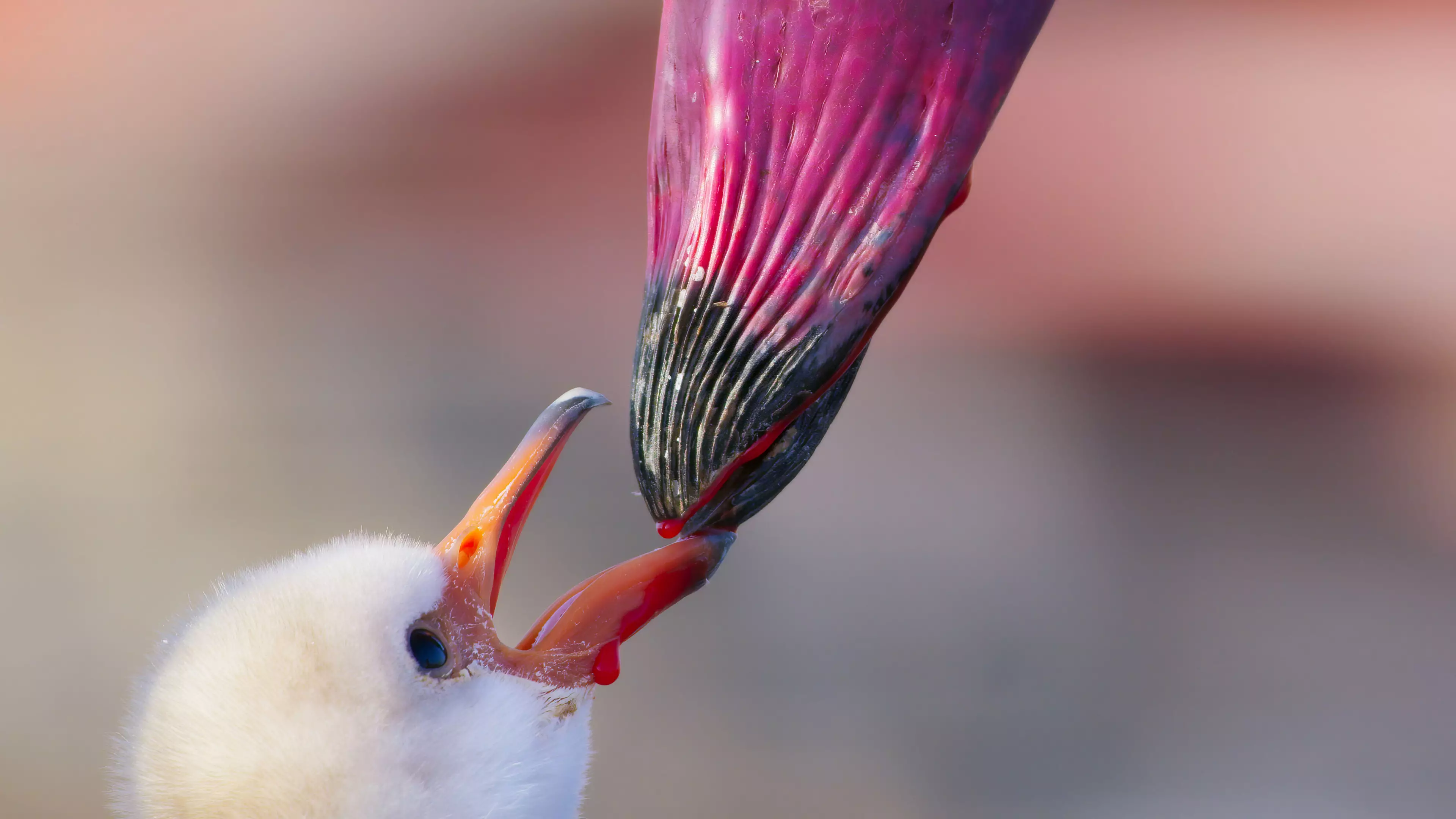
"A high proportion of the big cities in the world are built around the coast, because of their ports. And if the ice melts, the seas are going to rise and flood those cities.
"That's not... science fiction. It's going to happen. And we have still got a chance to stop it happening. What do we have to do to persuade people that that's the case?"
The importance of conservation work, and the role of zoos, is laid bare in A Perfect Planet - his new BBC natural history and science documentary series.
The show, which airs next year, seeks to "explain how our living planet operates" by turning the lens on "how the forces of nature drive, shape and support Earth's great diversity of wildlife".
In the process, cameras visit some of the world's harshest and most extreme habitats, while also heading to many facilities where animals are kept, from the Great Barrier Reef Marine Park in Australia to London and Edinburgh Zoos, to see how humans have worked to research and conserve them.
Split into five episodes - Volcanos, The Sun, Weather, Oceans and Humans - the series took four years to film, and visited 31 countries, including some locations which have barely been seen before, such as the salt encrusted Lake Natron in Tanzania and the very bottom of Fernandina's active volcano in the Galapagos.
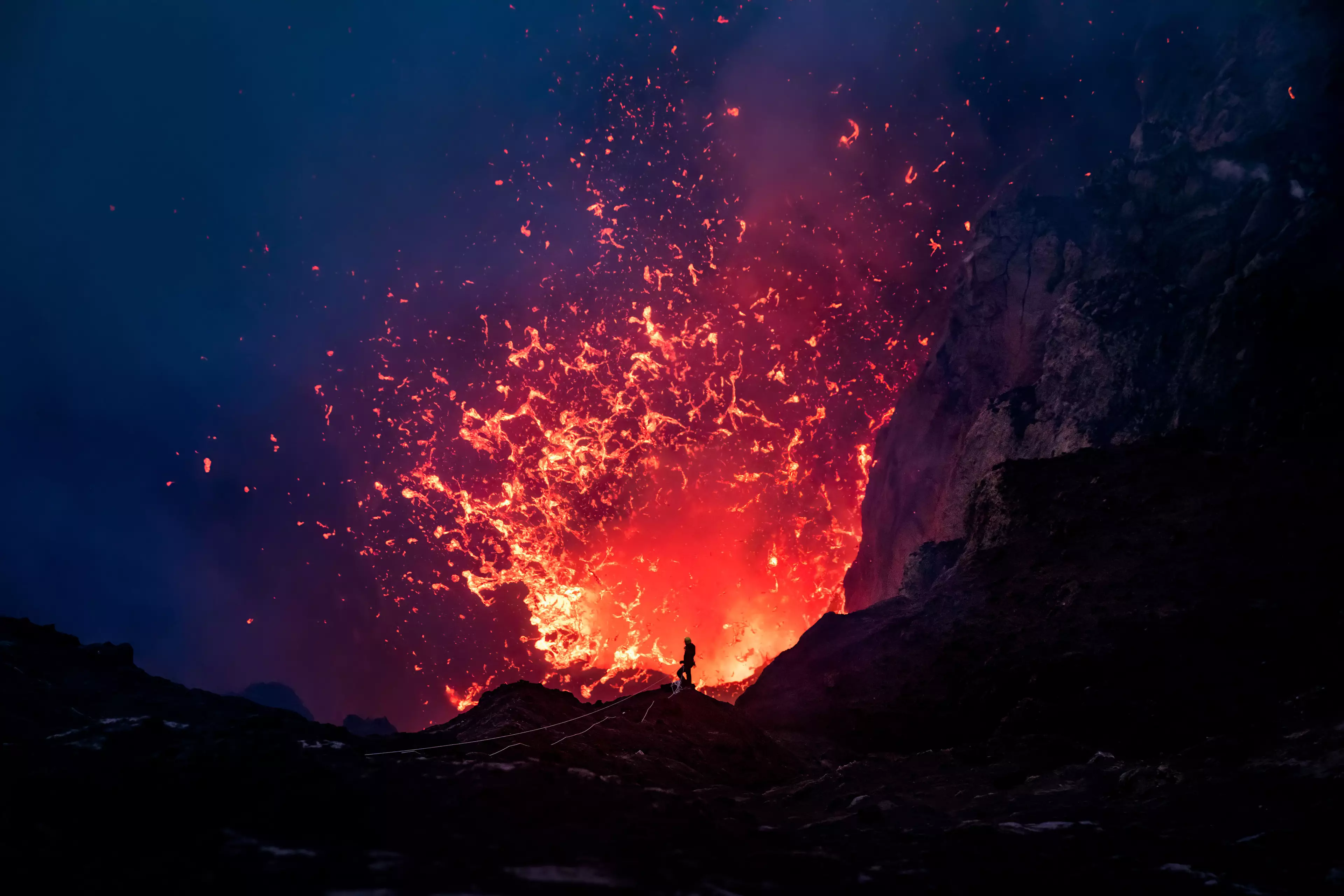
Using drones to film some of its incredible footage, A Perfect Planet will see us marvel at just how adaptive animals really are, showing flamingos surviving on the corrosive plains of Lake Natron, lions in Kenya whose roaming patterns have been altered by the weather and Aldabra giant tortoises, who face losing their habitats as a result of flooding from the Indian Ocean.
However, episode five - Humans - also exposes the damage we're doing to the natural world as a new natural force, highlighting the immense amount of work we need to do to fix climate change.
"Oceans, sunlight, weather and volcanoes - together these powerful yet fragile forces allow life to flourish in astonishing diversity," Sir David says as he discusses the new show.
"They make Earth truly unique - a perfect planet. Our
planet is one in a billion, a world teeming with life. But now, a new dominant force is changing the face of
Earth: humans. To preserve our perfect planet we must ensure we become a force for good."
Breaking Boundaries: The Science of Our Planet is available on Netflix now
Featured Image Credit: NetflixTopics: TV and Film, TV News, david attenborough, TV Entertainment, Netflix